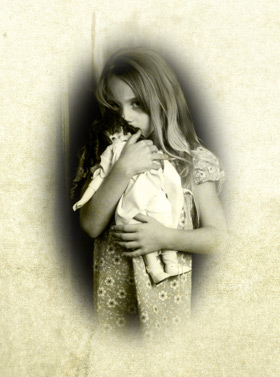 |
About Hope Road The MovieHuman traffickingHuman trafficking is a planet wide epidemic. With the ease of travel, human beings are trafficked throughout the world and children are the most lucrative in this multi-billion dollar business. This film focuses on the plight of children between the ages of ten and sixteen. These children have been abandoned, literally thrown out of the home of one or both parents, left behind when parents move on, or flee abusive situations so intense that the unknown is risked rather than face mutilation and death. With the collaboration of the FBI, KBI, some of the victims, and numerous law enforcement agents and lawmakers, we will weave the story concisely so as not to spend too much time on the problem. We must make the problem clear but our intent is to focus on the need, the progress, and the solution. The following is a very real scenario explaining why and how many children enter the life of a sex victim. We see a child exiting a bus near dusk. She has just been abruptly thrown out of her home by her mother who has been verbally and physically abusive to this child all of her life. Fleeing in tears, she finds her way to the bus terminal. A middle aged man is sitting in the car waiting for the 7:30 bus to arrive. He’s reading a book and listening to his radio. As the bus pulls in he makes note of it and goes back to his book, occasionally glancing up as if looking for a passenger he’s waiting to pick up. As the passengers begin to disembark, he puts his book down and watches. He notices a young girl around the age of 12 come down the steps and stand to the side so she doesn’t hold up the other passengers. He waits. She looks around, unsure of which direction she should go in and slowly heads toward the terminal. She sees a row of chairs and sits down. The man waits, making certain no one is going to claim this child, then gets out of his car and goes into the terminal. He walks over to her and sincerely begins to engage her. He explains that he just put his grandmother on the bus and couldn’t help noticing how she was alone and seemed a little frightened. He tells her that she should not be alone, that this is a dangerous place for a young girl. Generations of training have taught him how to put young girls at ease and make them feel safe. Having accomplished this, he tells her to come home with him and he will give her a meal and a place to sleep. His family will be happy to have her and will make her feel welcome. Over the next few days she’s lavished with love, given clothes, adequate food, and introduced to other young girls. Within a few weeks, the man who saved her is raping her. Soon after, he is selling her multiple times a day, seven days a week, and earning around $150,000 a year from the sale of her body. This is the method of the experienced pimp.The sense of relief that comes over her is noticeable. Someone is being kind to her. Somehow, she may actually be OK. Maybe she could clean his house and be useful enough that he will allow her to live with him, go to school, and be a normal kid. She goes with him. Currently when a child is found in a situation unsuitable for a young girl, as in a drug bust, police officers don’t know what to do with her. Often they tell her to get dressed and go home. But very likely there is no home for her to go home to. If the child is taken to the police station, there is no place to rehabilitate her. There is nowhere for her for her to go and she is placed back into the hands of her pimp. The need for rehabilitation homes and centers for these young children is at a critical point. With estimates of 100,000 to 300,000 missing children in the United States alone, there is enough need in every major city to fund and staff a center. The silent and horrendous abuse that is suffered will take dedicated paid staff to help them through. And such dedication exists in women like Carrie Rosetti. Carrie was given a 3 year grant to develop the Task Force against Human Trafficking. Right away she began receiving calls to assist victims from domestic to internationally trafficked women. Soon Carrie established resources from 70 different agencies that she enlisted when circumstances arose. She secured medical, counseling, educational, social and various other resources to help, and together they were a successful group. Then the grant ran out and Carrie was out of a job. This is a common story. Dedication of herculean proportions resides within her and so many like her, but there is a lack of funding available for them to carry on their work to save the children on our very own streets. FundingMajor fund raisers will be held in Kansas City, MO; Wichita, KS; Oklahoma City, OK; Atlanta, GA; Los Angeles, CA; and Dallas, TX. The draw will be the law enforcement officers, political figures, task force agencies and media who will be speaking on the issue and need in their community. Public radio, local television talk shows, newspapers and local publications will be used to advertise the events. We will be writing grant proposals and requesting funds from major foundations and corporations. We have filmed the initial footage to create a 5 minute trailer to offer in our requests for grants. PurposeLittle Wolf Productions was approached by women of law enforcement agencies who expressed the need for help. “Help us help these children,” was their plea. They explained that funding disappeared for any forward movement to help child victims of trafficking. The crux of the problem is: if a child is found during a drug bust or a sting, there is no place to take her for rehabilitation. Rehabilitation does not exist for minors. The training for law enforcement officers in this area is so scarce that oftentimes during a bust, if a young girl is present, she is told to go home. There is no home for her to go to. Little Wolf Productions will gift this film as a tool to educate, raise awareness, and train task forces and law enforcement agencies. These agencies, along with service organizations at the grassroots level will use this film for the purpose of raising funds for the necessary rehabilitation centers that will provide medical, counseling, social, and educational rehabilitation, and a safe place for these children and youth to learn how to live life as close to normal as possible. Little Wolf Productions will attend 5 international film festivals and use our distribution system, including PBS stations, for the purpose of showing the possible solutions we have found while working with the selfless individuals who have dedicated themselves to this lowest level of human behavior. TechnicalWe will have shot and will continue to shoot, in the film industries required HD format. Gary Deinstadt at Lighthouse Lane Film Studios will be our sound editor/designer who will mix and engineer by adding necessary tracks (Music) and removing unwanted noises ensuring a clean sound. |
|
|


